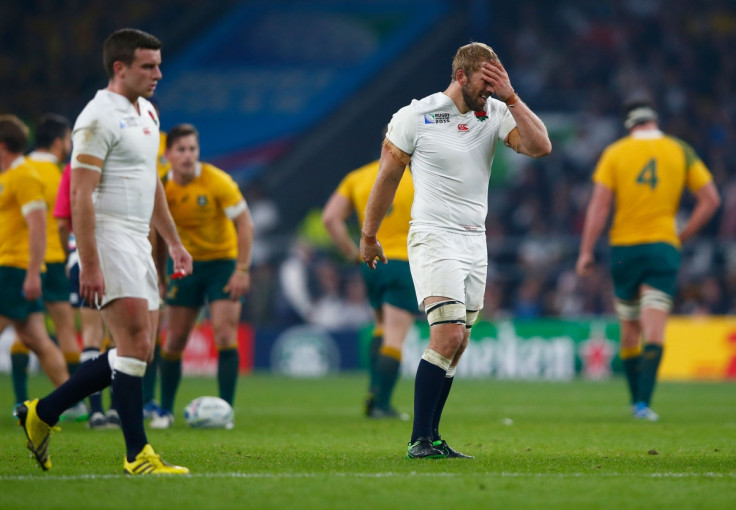Rugby World Cup 2015: Early England exit could cost country £3bn
England's humiliating early exit from the 2015 Rugby World Cup at the pool stages could cost the UK stock market £3bn (€4.06bn, $4.56bn), according to new research.
An essay published by the London Business School looked into the impact of sporting results on the financial markets, with the research showing the 33-13 loss England suffered to Australia will dent more than just the country's pride.
"What I wanted to do was to look at what drives the stock market, so the traditional view is that it's driven by economic fundamentals like dividends and profits and unemployment, but I wanted to show that the market is also affected by emotion, so I wanted to look at the effect of an international sporting defeat, the idea being that if a country loses an international competition, that affects investor mood and therefore can show up on the stock market," London Business School professor Alex Edmans told Reuters.

By understanding how this loss affected markets, he wanted to see how investor sentiment, or the mood that those making trades were in, could be affected in the wake of such a loss.
He said: "What I looked at is I looked at the results of over a thousand football games and 1,500 games in other sports, including rugby, and what I did was I had a model of what you should expect to happen to the stock market if there was no rugby or football match.
"So this is based on what happened the previous day, what's happening in the broader economy and so on, and so once I had a benchmark of what should happen with no result, then I looked at what actually did happen, and I compared the difference, and the difference I attributed to the sports game.
"So what I found for football was that an elimination from a major competition leads to the market going down by 0.5% the next day, and for rugby it's 0.15%. So you might think 'is that a big deal?' But 0.15% applied to the UK stock market that is £3bn wiped off the market in a single day."

Edmans worked with colleagues from the Norwegian School of Management and the University of Carolina on these findings, looking at how it might play out in 39 different countries and their stocks.
While markets are generally thought to be guided by rational decisions on how events might impact investment, non-quantifiable effects could be measured – and the difference with sporting results was that it was all in the heads of those making the decision to buy or sell.
"That was the motivation for looking at sporting events, because there are other things that affect the national mood, such as a plane crash or an election and so on. But those events don't just affect investor mood, they also affect the economy," he said.
"So if you found that the stock market went down after a plane crash, that could be purely rational, because the market knows there's going to be less expenditure on, say, aviation travel. But something like sports, it doesn't have an effect outside a few sectors, such as pubs or replica merchandise, and therefore given there shouldn't be an effect on employment, and dividend, and these other fundamental factors, we can attribute almost the entire decline to the impact it has on mood.
"What we can also look at is we found that the effect was stronger in small stocks, and small stocks tended to be affected by sentiment, because they're traded by retail investors, rather than hedge funds, which tend to be less prone to mood."
Asked what traders would be doing were the England rugby team to be reimagined as a listed company, he was unequivocal. He said: "I think everybody would want to sell it, actually short sell them at the moment."
© Copyright IBTimes 2025. All rights reserved.






















